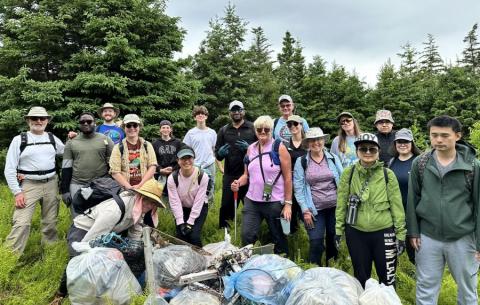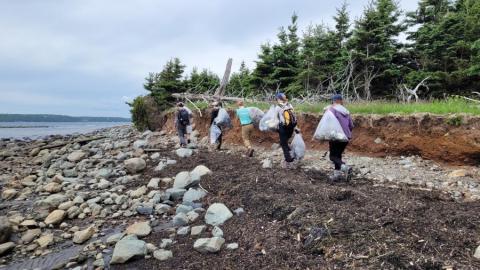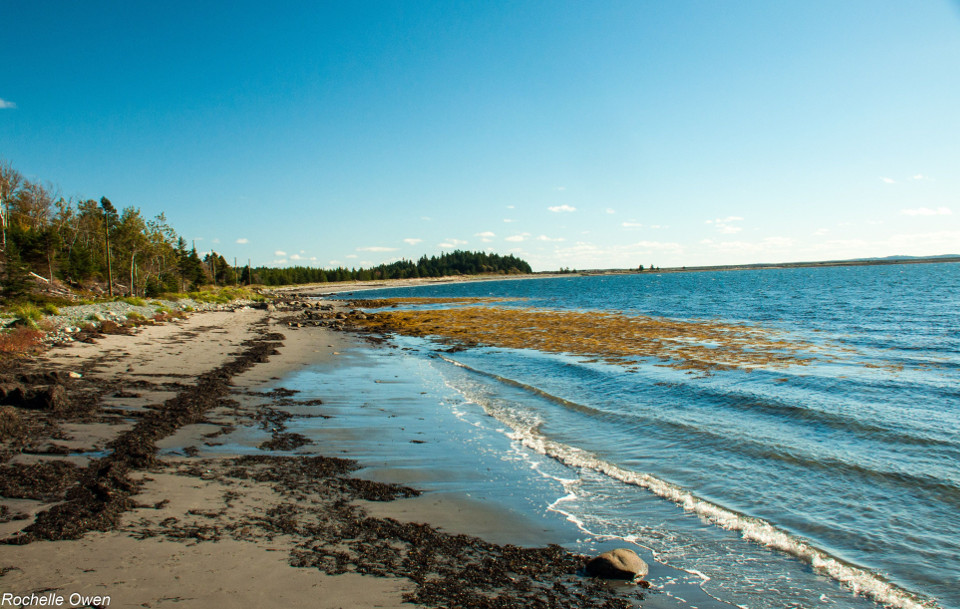Friends of McNabs Island AGM April 9 2025
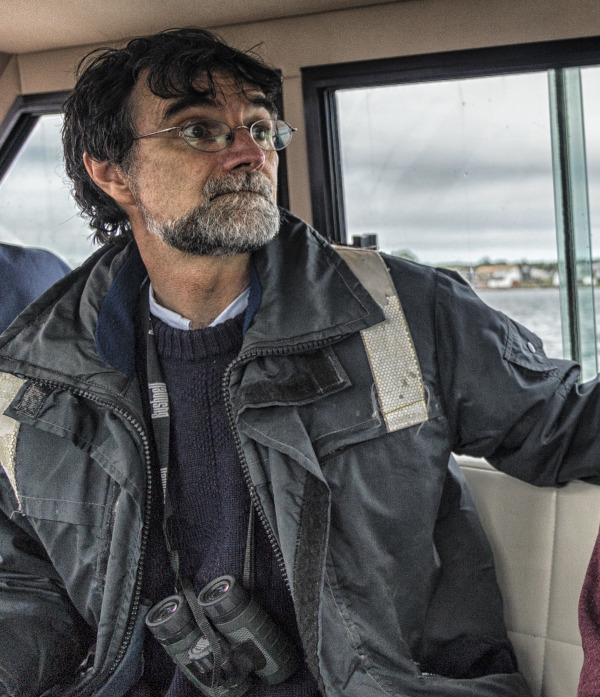
Dan Conlin Explores McNabs Island from Halifax Harbour. (Photo Credit: Colin Timm, Pier 21)
You are invited to the Friends of McNabs Island Society’s 34th Annual General Meeting on Wednesday, April 9th in the Auditorium of the Nova Scotia Museum of Natural History at 1747 Summer Street in Halifax. Doors open at 6:30 and the meeting starts at 7:00.
Join historian Dan Conlin for a fascinating illustrated talk about the shipwrecks that encircle McNabs Island. Many of these wrecks are still visible at low tide.
"McNab Island has been the final destination for countless vessels for centuries. Their evocative timbers and rusty fittings still have secrets to reveal and stories to tell.”–Dan Conlin.
Dan Conlin is a historian, author and retired museum curator in Halifax. Born in Berwick Nova Scotia, Dan studied journalism and history at Carleton University in Ottawa and then worked as a producer for CBC Radio in Ontario. He returned home to pursue a Master’s in History at Saint Mary’s University. One of his first steps in reconnecting with the province was to join the Friends of McNabs Island. He wrote the chapter on lighthouses and shipwrecks for the Friends’ Discover McNabs Island guide book.
Dan was curator at the Maritime Museum of the Atlantic for 19 years where he was responsible for many successful exhibits including the Titanic display. He was also curator for a Pirates exhibit which led to his first book Pirates of the Atlantic: Robbery, Murder and Mayhem off Canada’s East Coast. His second book, War through the Lens: the Canadian Army Film and Photo Unit was based on personal interviews and research that Dan conducted for his undergraduate thesis.
From 2014 until his retirement in November 2024, Dan was curator at the Canadian Museum of Immigration at Pier 21. His last show at Pier 21was "A History Exposed", the first national exhibition on the history of slavery in Canada, including a profile of the McNabs Island merchant and slaveholder, Joshua Mauger.
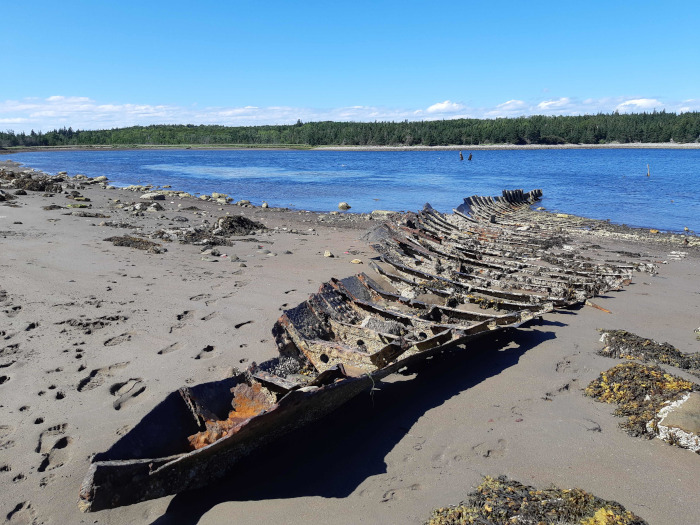
The spine of the shipwreck ‘The Brant’ in Wreck Cove on McNabs Island. (Photo Credit: Catherine McCarthy)





